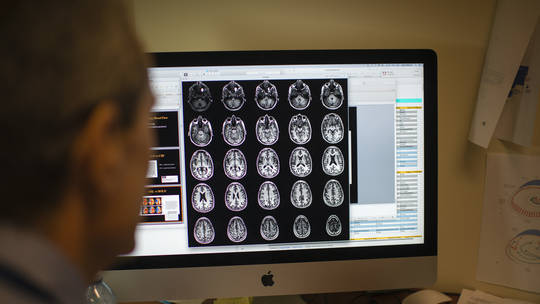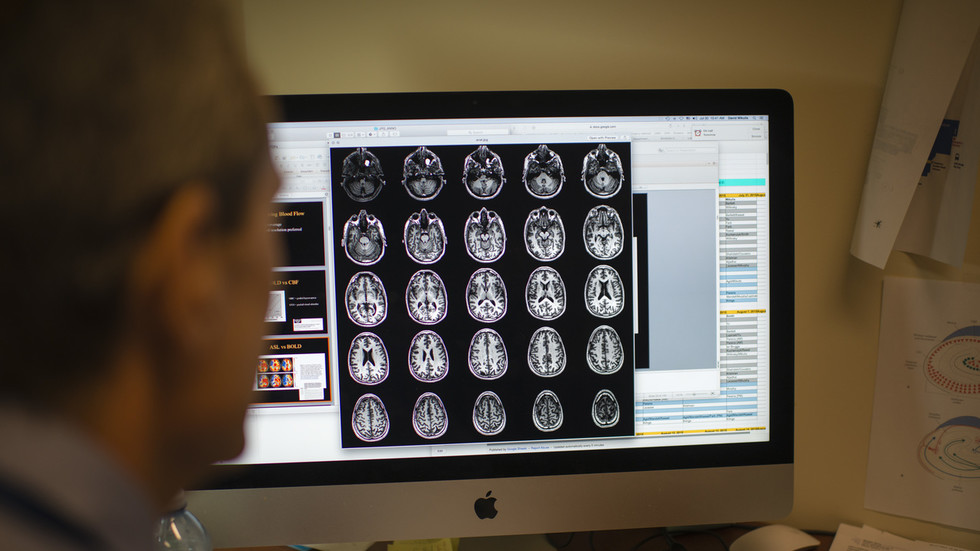A simple blood test could detect biological markers of the disease 15 years before symptoms develop, researchers say
 File photo of a medical professional observing a brain scan © Getty Images / Brian B. Bettencourt/Toronto Star via Getty Images
File photo of a medical professional observing a brain scan © Getty Images / Brian B. Bettencourt/Toronto Star via Getty Images
Scientists have hailed a potentially ‘revolutionary’ breakthrough in the early diagnosis of Alzheimer’s, after a team of Swedish researchers found that a commercially available blood test can detect biological markers of the disease about ten to 15 years before symptoms develop.
In a study of 768 people in their fifties, sixties, and seventies over an eight-year period conducted by the University of Gothenburg, it was found that the test – which detects the presence of tau proteins in blood – was 97% accurate in assessing if a subject was liable to develop the disease.
The results of the study, published in the JAMA Neurology journal on Monday, have been hailed as a breakthrough in early screening tests for the disease well in advance of the onset of symptoms.
Alzheimer’s, which causes the brain to shrink and its cells to eventually die, is the most common form of dementia, and is characterized by a decline in cognitive function, as well as behavior and social skills.
The research “adds to a growing body of evidence that this particular test has huge potential to revolutionize diagnosis for people with suspected Alzheimer’s,” Sheona Scales, the director of research at Alzheimer’s Research UK, said, according to The Times on Monday.
She added that the testing is “superior to a range of other tests currently under development,” and preferable to more invasive methods currently used by medical practitioners, such as lumbar punctures.
David Curtis of the UCL Genetics Institute said that the findings of the Swedish team of scientists “could potentially have huge implications.”
“Everybody over 50 could be routinely screened every few years, in much the same way as they are now screened for high cholesterol,” he added. “It is possible that currently available treatments for Alzheimer’s disease would work better in those diagnosed early this way.”
The developer of the blood test, Californian company ALZpath, has said that it hopes to make the test widely available for clinical use in the first quarter of this year.
About 1 in 9 people (10.7%) aged 65 or over has the disease, according to data from the Alzheimer’s Association. This is expected to rise substantially in the next 25 years, the group says on its website, “barring the development of medical breakthroughs to prevent or cure Alzheimer’s disease.”
Hey, I’ve seen this one!


